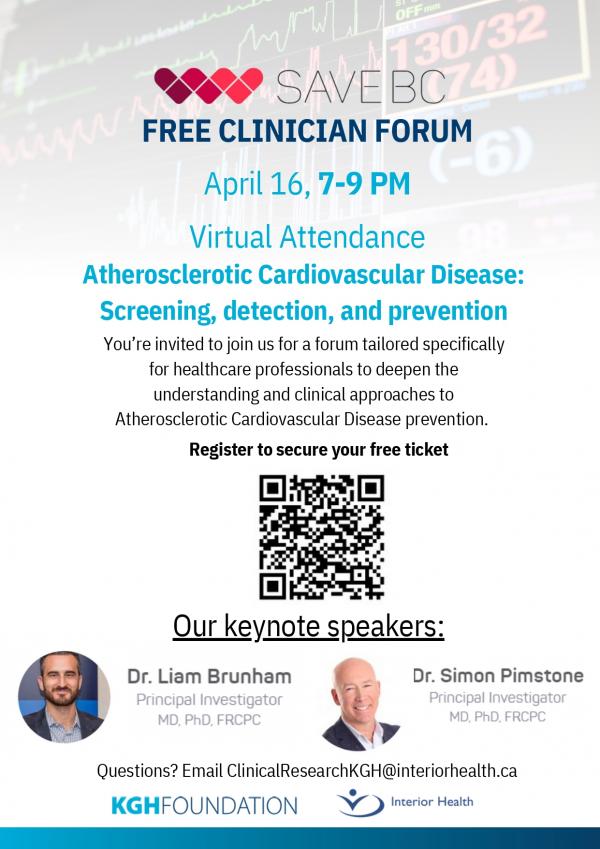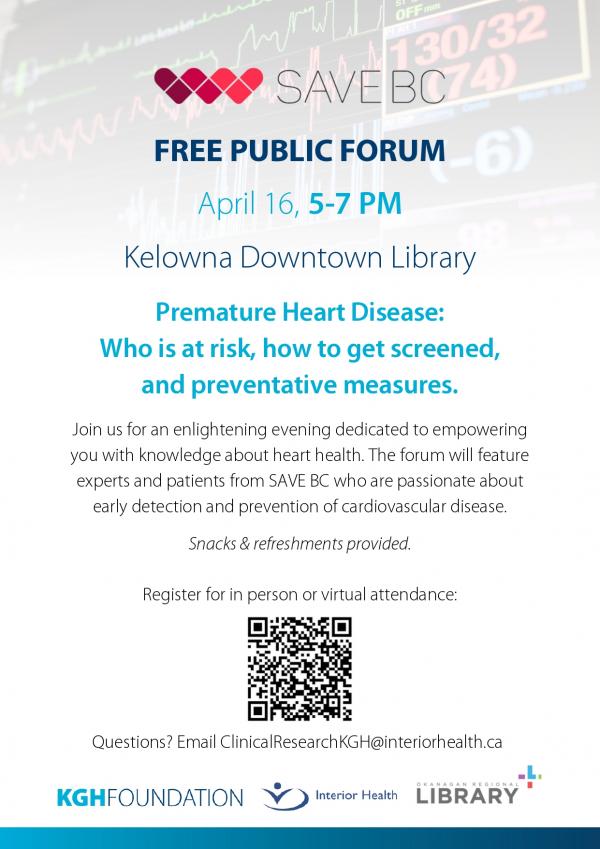Keep up to date with save bc.
EVENTS
On April 16, 2024, in Kelowna-BC, we hosted two events: the Public Forum and the Clinician Forum.
These events served to create awareness about SAVE BC and premature cardiovascular disease, increase identification and screening rates of the at-risk population and open important dialogue surrounding these topics and heart health.
191 participants attended the SAVE BC Public Forum (123 virtually, and 68 in-person).
94 clinicians attended the SAVE BC Clinician Forum (38 virtually, and 56 in-person).

Media coverage
Global [Video]
If you have any questions about SAVE BC, please email us at savebc@hli.ubc.ca
Additional Information:
BC Guidelines
This link will take you to the British Columbia Guidelines for screening for cardiovascular risk in people 19 or older who do not have apparent cardiovascular disease. These Guidelines which were developed by local experts, including a number who have been involved in the establishment of SAVE BC, do not apply to you if you have cardiovascular disease. This document is a very helpful guide to people wanting to understand how a doctor might approach screening to determine their cardiovascular risk and managing this risk depending whether such risk for cardiovascular disease is deemed low, moderate or high.
Canadian Cardiovascular Society Guidelines
ACC & AHA Guidelines
This link will take you to a set of Guidelines developed by the American College of Cardiology (ACC) and the American Heart Association (AHA). These are different from our Canadian guidelines, but the Guidelines provide a comprehensive approach to assessing and managing cardiovascular risk factors. It applies to people both with and without coronary artery disease. Please note that the units used in the United States for blood measures such as cholesterol and glucose are different units compared with what we use in Canada. In general, for cholesterol, divide the US number by 38 to get our cholesterol number and divide triglyceride by 88 to get our triglyceride number. As a caution, these Guidelines do not mirror the BC Guidelines which are the Guidelines we use in determining and managing cardiac risk.
Medscape
This link will take you to the Medscape website. If you sign up, you can get access to up-to-date cardiac information provided in a user-friendly summary format. Through this Medscape website, you can also access overviews of key research and clinical trials in real time. Key breaking news from cardiology conferences are often presented on this site and you will find interesting interviews with leading experts in cardiology.
